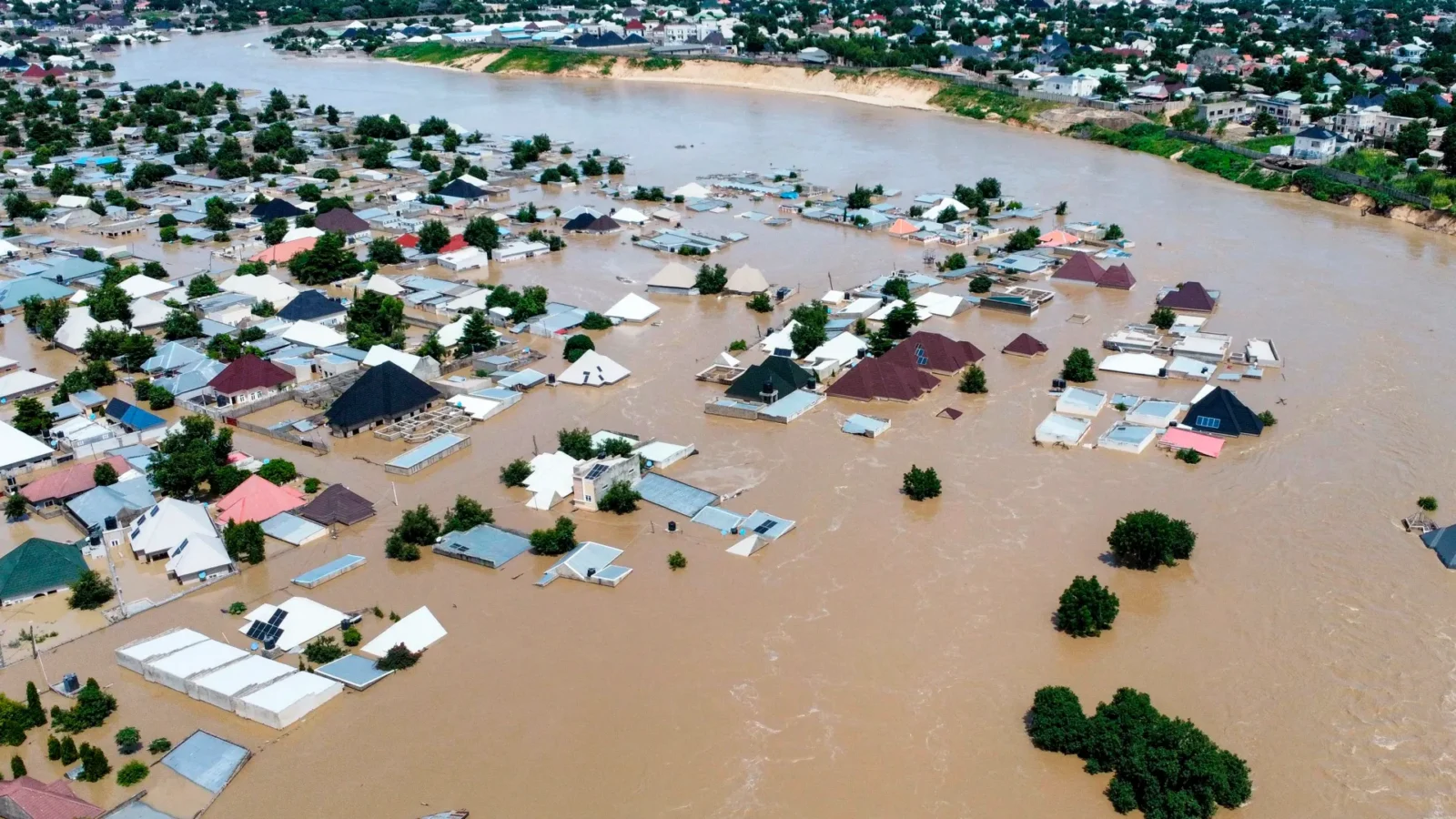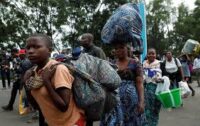The city of Maiduguri in north-eastern Nigeria is once again under the looming threat of devastating floods, just a year after torrential rains and the collapse of the Alau Dam left entire neighbourhoods submerged. For many residents, the memory of last year’s destruction remains fresh and painful, with fears growing that history may repeat itself as this year’s rainy season intensifies.
Last year’s disaster claimed at least 37 lives and forced nearly two million people to flee their homes, leaving behind destroyed farms, businesses, and properties. Among those who suffered unimaginable loss was 42-year-old Sa’adatu Dahiru, who lost her two-year-old son. She recalled how her family had to flee in the middle of the night with nothing but a few clothes, leaving behind their home and belongings. “He died as a result of hunger and fever during the flood. We had no proper food, no medicine, and no safe place to stay,” she told the BBC. While she received a small cash relief of 10,000 naira (around $7), she says government support has since stopped. “Since then, none of the other promises from the government have reached us. We are still waiting, still suffering.”
The Borno State government insists that it provided significant aid through relief camps, food distribution, and cash assistance, while also working to reconstruct the Alau Dam and dyke system that failed under heavy rains. The dam, originally built in 1986, is managed by the Chad Basin Development Authority (CBDA). However, years of insecurity caused by Boko Haram insurgents have hindered maintenance. Mohammed Shettima, head of CBDA’s engineering department, explained that the dam sits just four kilometres from insurgent bases near Sambisa Forest, making upkeep extremely difficult. Last year, when the dykes gave way, a massive volume of water engulfed Maiduguri, turning the flood into the worst the state had seen in 30 years.
For survivors, the impact has been life-changing. Seventy-two-year-old Maryam Jidda, who fled Damboa after a Boko Haram attack years earlier, thought she had found safety in Maiduguri—until the floodwaters came. She recounted standing waist-deep in water as her home collapsed, losing not only her shelter but also treasured family photographs. Now living in temporary shelter, she struggles daily with hunger and unsafe drinking water. “They didn’t warn. They came like a dark wind in the night,” she said of the insurgents who first displaced her. Her face, weary under her red jilbab, tells the story of years of compounded hardship. Out of her 10 children, only three have survived. “There’s nothing left but memories and pain,” she lamented.
Young people have also been badly affected. Twenty-one-year-old Ali Kadau, who once assisted at a mechanic’s workshop, said the floods “took everything” from him. His mud-built family home in Gwange collapsed, his belongings were washed away, and even the workshop tools he relied on for work were destroyed. His family slept outside for days before finding shelter in a crowded school. Now jobless, he spends his days trying to earn a little money pushing wheelbarrows in the market. “Other days, I do nothing but think,” he said, describing his uncertain future.
The government of Borno State, led by Governor Babagana Umara Zulum, has acknowledged the scale of the challenge. He described the flood response as daunting, especially given the state’s ongoing battle against violent extremism. According to official figures, 28.2 billion naira ($18 million) was raised last year through state and federal government contributions, as well as international partners like the UN refugee agency and the World Food Programme. The funds were reportedly used to support over 100,000 households, traders, schools, and places of worship, alongside food and shelter for displaced families. Yet for many survivors still in makeshift housing, the support feels insufficient, and rebuilding remains painfully slow.
Despite desilting rivers, constructing drainage systems, and beginning dam repairs, the scars of last year’s floods are far from healed. Authorities have requested an additional 61 billion naira to rebuild destroyed infrastructure including roads, hospitals, and bridges. However, there are fears that the funding will not be approved unless another disaster strikes, leaving the city vulnerable once more.
The United Nations has described the 2023 Maiduguri flood as the most devastating in Borno State in three decades. As September’s rains intensify this year, residents like Sa’adatu Dahiru and Maryam Jidda live with constant anxiety, uncertain of how they will survive if another disaster unfolds. Dahiru’s question echoes the fears of thousands: “How do I start again when I have nothing?”
For Maiduguri, a city already burdened with hosting over a million internally displaced people from years of insurgency, the renewed threat of flooding is a grim reminder that for many, life remains an unending cycle of displacement, loss, and survival.














Leave a comment